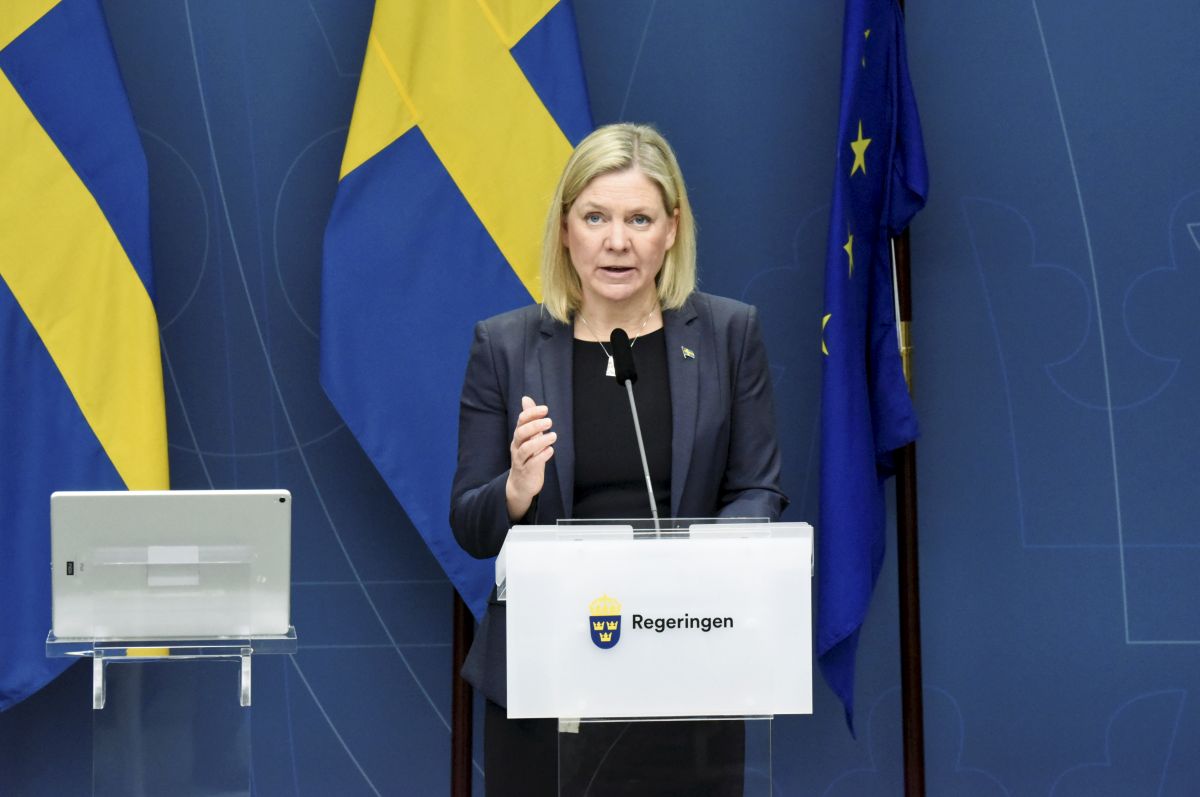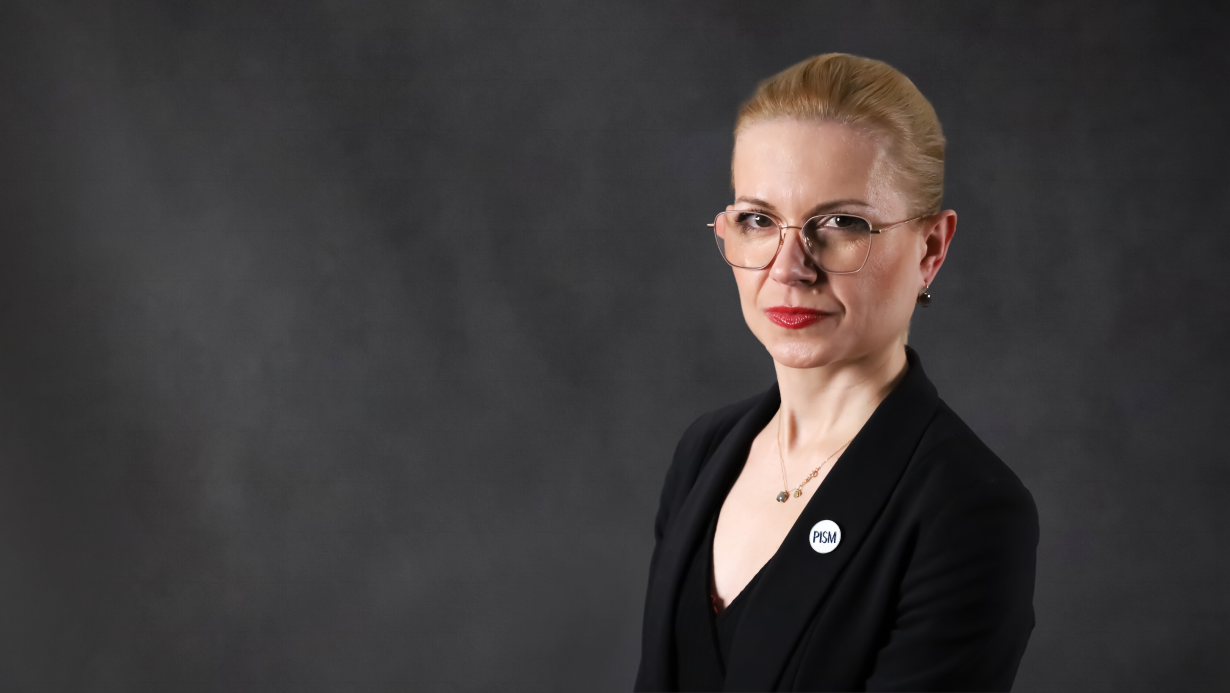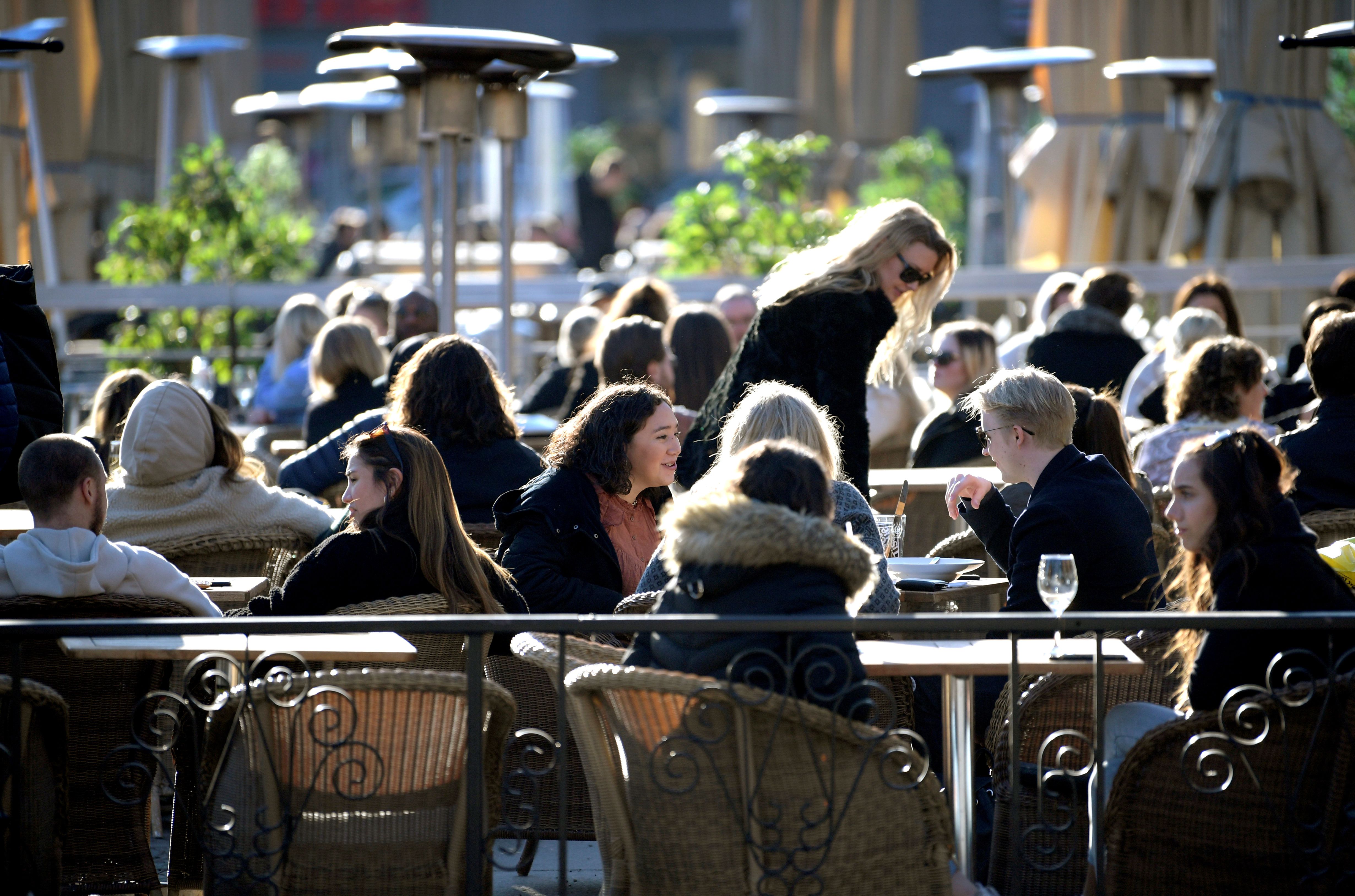New Government of Sweden Just in Several Months before Parliamentary Elections
At the end of November last year, the Riksdag re-elected Magdalena Andersson from the Swedish Social Democratic Workers' Party (SAP) as prime minister of Sweden, this time in a one-party government. The new government’s foreign policy priorities will not change, but Russia’s aggressive actions of late will prompt Sweden to greater international involvement. This is related, for example, to activities to maintain security in Central Europe, which is in line with the objectives of the Polish OSCE presidency.
 Fot. TT newsagency/ Marko Saavala/ FORUM
Fot. TT newsagency/ Marko Saavala/ FORUM
The Establishment of a New Cabinet
Andersson replaced Stefan Löfven as prime minister from the same party. The vote of confidence expressed on 24 November for her minority government resulted from the lack of a dominant political party and thus the desire to avoid early elections in a pandemic. An ad hoc result of the opposition’s advantage was the passing of the budget with amendments, which resulted not only in the resignation of the only coalition partner, the Green Party, but also in the resignation of the head of government. Ultimately, after a few days, she again headed a cabinet created exclusively by Social Democrats (100 seats in the 349-seat parliament). Some of the groups that have so far supported SAP—the Green Party (16) and the Centre Party (31), with additional support from the Left Party (27)—backed the appointment by abstaining from voting.
The complicated balance of power in parliament is the result of the fragmentation of the Swedish political scene (the Riksdag is composed of eight parties) and the inability to build a majority coalition after the 2018 elections. The largest opposition to the SAP at that time—the liberal-conservative Moderate Coalition Party (70 seats)—did not take power, not wanting to co-rule with the nationalist Swedish Democrats (62 seats). That is why Löfven, the prime minister since 2014, re-established a minority cabinet in a coalition with the Green Party. In June 2021, as a result of the government crisis around the liberalisation of rent regulations, he received a vote of no confidence, but he continued in office because of a lack of an alternative until November last year.
The Government’s Actions
The establishment of the Andersson cabinet was meant to improve the management of the pandemic. It coincided with a December report by a government commission that assessed the fight against COVID-19 as “slow” and “insufficient”. The decline in the efficiency of the health system resulted in less and less public confidence in the government’s actions (e.g., from April to June 2020, support shrank by 11 percentage points to 45%). Problems with the fight against the coronavirus forced Andersson to increase her involvement in this area. It included the introduction of stricter restrictions, for example, the requirement of vaccine passports, including at public events, as well as restrictions on the operation of restaurants. The greater caution by the authorities stems in part from the experience of the previous government and its model of voluntary recommendations. Thanks to intensified communication from the government, support for SAP increased between November last year, and in January this year it was up by five pp to 30%.
While the functioning of the minority cabinet has its limitations, the Social Democrats can push for their vision of a “green welfare state”. The flagship initiatives include the continuation of activities to implement a circular economy, development of the social welfare system, and reform of education, as well as related integration policy. In 2020, about 82,000 people arrived in Sweden despite the limitations related to the pandemic. However, according to government forecasts, in the long term, migration is to increase to more than 100,000 people annually. The authorities give priority to eliminating social divisions and supporting integration, including by putting more emphasis on learning the Swedish language. This approach is to promote professional activation. To counteract an increase in unemployment (to about 8%), the government is also planning systemic support for the labour market. The high crime rate will remain a challenge—in 2020, there were about 300 incidents involving weapons in which 42 people were killed. Taking into account the activity of organised crime groups, Sweden is worse off than, for example, Italy, and the rate of shooting deaths is close to four per million inhabitants per year, while the European average is two and a half times lower.
Foreign Policy Priorities
Andersson will continue the foreign policy of the Löfven government. She emphasises that it will focus on cooperation in the Baltic region, which is to foster economic development after the pandemic. The government will continue to see the EU as a guarantor of stable growth and job creation. To this end, Sweden supports the EU’s single market and the removal of various barriers. At the same time, it will continue to advocate for Union-wide economic policy and condition payments of EU funds on compliance with the rule of law. The Swedish government, supporting the EU’s climate neutrality, favours including nuclear energy in the EU taxonomy as an ecological energy source. It also wants to eliminate fossil fuels by 2045 and obtain energy fully from renewable sources—currently RES constitutes 56% of the energy mix, which makes this country one of the pioneers in the EU.
Sweden will remain active in the Union’s eastern policy. This is confirmed both by its commitment to strengthening the Eastern Partnership, including during its most recent summit in December last year (Foreign Minister Ann Linde spoke in favour of, e.g., continuing to support pro-democratic ambitions in Belarus despite that country’s withdrawal from the EaP), as well as clearly opposing Russia’s aggressive policy towards Ukraine. This is evidenced by criticism of Russia’s demands that NATO not accept new members. Moreover, visiting Moscow in November last year, during the Swedish chairmanship of the OSCE, Linde also stressed the importance of the presence of the Special Monitoring Mission in Ukraine.
Due to Russia’s increasingly aggressive policy and the growing threat in the Baltic Sea as well, Sweden is strengthening cooperation in the field of security, including with Finland and NATO. In November 2021, Defence Minister Peter Hultqvist visited Helsinki in connection with the Finnish presidency of NORDEFCO, the main platform for joint security activities by the Nordic countries. In January this year, after a meeting with Linde and Finnish Foreign Minister Pekka Haavisto, NATO Secretary General Jens Stoltenberg confirmed the shared perception of threats from Russia. This coincided with Sweden’s increased combat readiness in Gotland. The priority is to strengthen air defences and military interoperability.
The U.S. will remain an important partner of Sweden. In December last year, on the sidelines of the Arctic Council ministerial meeting, Linde spoke in Stockholm with U.S. Secretary of State Antony Blinken not only about common interests in the Arctic but also about combating climate change, which is a priority for both countries. While Sweden will continue to be critical, along with the U.S., of China’s diplomacy offensives, it will remain an important partner in innovation and direct investment.
Conclusions and Perspectives
The change of the SAP government and the exit of the Greens from the coalition boosted the Social Democrats’ ratings, which could also have been influenced by how the pandemic has been managed. The Andersson Cabinet, regardless of the prospect of a short term in office, intends to promote and implement its own vision of the state, including solutions outside of the political compromise that the Social Democrats have been burdened the government with over the last seven years.
The new government will strive to improve the labour market and social assistance. Migration policy focused on integration will also remain a priority. The main directions and activities of foreign policy will not change. Sweden will support the EU’s efforts to combat the effects of the pandemic, but its approach to finances will remain frugal. Climate policy and measures for economic growth and the circular economy will continue to be important goals. At the same time, Russia’s increased activity forces Sweden to become more involved in the international arena. Therefore, in the regional context, the role of security cooperation with the Nordic countries will increase. As a result, Sweden will tighten its relations not only with Finland but also with NATO, which, however, does not yet assume Sweden’s membership in the Alliance.
Even though Sweden ended its chairmanship of the OSCE (it was taken over by Poland), it will continue to engage in the organisation’s activities, including in the protection of human rights, gender equality, and the empowerment of women in international politics. Poland will be supported by Sweden’s actions for security in Central Europe and counteracting Russia’s policy. An important issue in this regard for both countries will remain building and strengthening strategic communication, including in the fight against disinformation.




.png)
_sm.jpg)